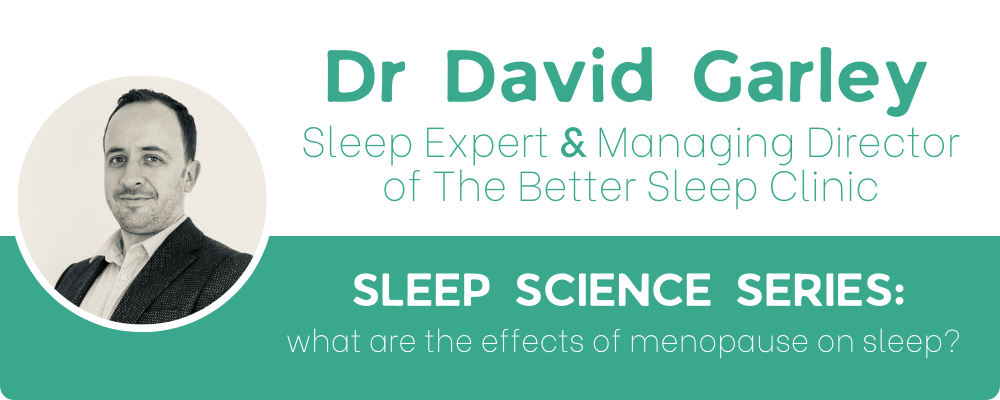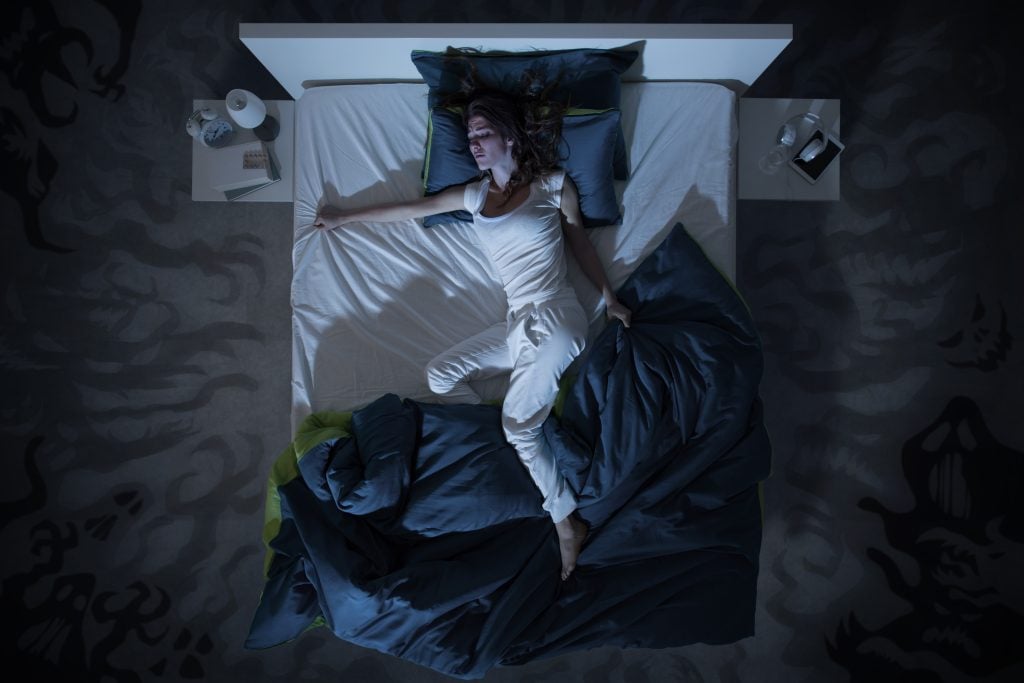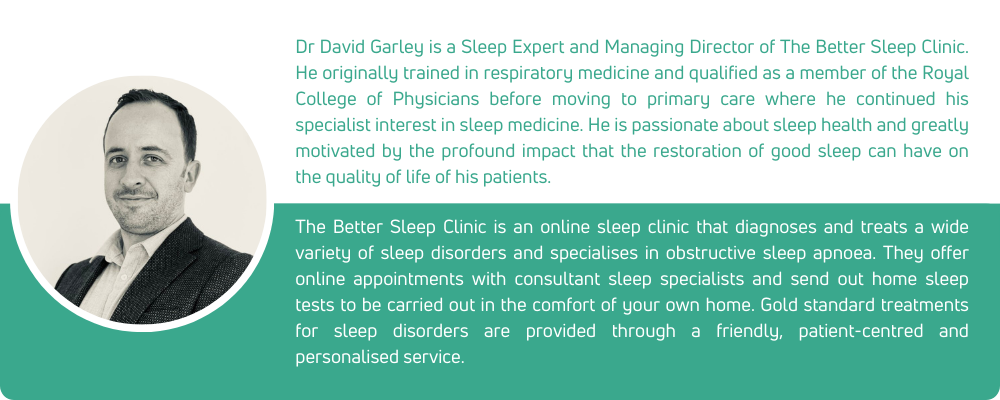
Menopause significantly affects day-to-day life, with a common factor being a poor standard of sleep. However, this isn’t to say there aren’t ways in which menopause can’t be managed; in this blog, we explain the effects of menopause on sleep and the different treatments to consider.
Menopause refers to the point in a woman’s life when periods have finished. As well as no longer producing eggs, the ovaries stop producing oestrogen and progesterone hormones. The ovaries do not stop producing hormones suddenly but go through a transitional phase of irregular hormone production.
The rapid change of hormone levels during this phase, called perimenopause, can cause several symptoms, such as hot flushes. Other menopausal symptoms include brain fog, depression, anxiety, bladder symptoms and joint pains.
Oestrogen is also closely related to menopause. High oestrogen levels are associated with incredible health benefits, including keeping the heart healthy and stopping blood vessels from furring up. When the oestrogen levels start to drop in the perimenopause, these health benefits begin to reduce. Another common symptom of perimenopause and menopause is poor sleep, which can be due to several specific sleep disorders that all become more common during this phase of life.
Insomnia refers to difficulty falling asleep, staying asleep or waking up too early. It causes poor daytime functioning, including poor concentration, mood disturbance and fatigue.
Insomnia can start for several reasons during the menopause. Often, this can be because the perimenopause and menopause itself can be a very challenging time of life. Women often report increased stress with relationships, both personal and at work. Fatigue and brain fog can lead to struggles in managing various life issues, and there are often increased incidences of mental health conditions such as depression and anxiety. Stress, worry and anxiety, synonymous with depression and anxiety, are the key drivers of insomnia.
Other reasons that sleep can be disrupted around the perimenopause and menopause are hot flushes. Hot flushes impact sleep and are a commonality during perimenopause and menopause. Hot flushes often occur at nighttime, resulting in a sudden increase in body temperature and a racing heart, frequently disrupting sleep. Women also often report needing to get up to pass water more frequently overnight, which can also cause sleep disturbance.

Perimenopause and menopause can be an incredibly challenging time. However, treatments are available to help reduce or cope better with your symptoms. There is no single approach to managing menopause, and everyone is different. Instead, taking a holistic view and looking at all aspects of a woman’s life is important. Detailed below are some treatment options to consider.
When many symptoms relate to low or unpredictable hormone levels, regular doses of oestrogen can improve these symptoms. Frequent dosing can help iron out unpredictable fluctuations in hormone levels and reduce hot flushes. This can also impact many other symptoms, including brain fog, mood disturbance and joint aches.
Oestrogen can also improve some of the vaginal and bladder symptoms of the menopause, such as needing to pass water very frequently. These symptoms can also be helped with topical oestrogen creams. If you think you would benefit from HRT, speak to your GP.
HRT is not the only option for managing perimenopause and menopause; ensuring you are as healthy as possible can help manage this phase. Regular exercise helps maintain strong bones and joints and keeps your heart healthy. Both a healthy diet and regular exercise can make a significant difference. It’s also important to pay attention to your mental health. Depression and anxiety are common at this time in life, sometimes due to the changing hormone levels but also because of other stresses. If you are struggling with your mental health, speak to your GP.
Sleep is a vital function and affects so many parts of our lives. When we sleep well, our blood pressure is lower, and there is less stress on our cardiovascular system. This is very important during perimenopause and menopause when the protective benefits of oestrogen are reduced. Sleep is closely related to our mental health, and inadequate sleep is linked to depression and anxiety. There are several ways you can make sure you sleep better during perimenopause and menopause.
Sleep hygiene is the process of a sensible and consistent bedtime routine. Although it may be easier said than done, try and carve out a segment of time when you can relax and switch off from the stresses and pressures of daily life.

The bed itself is crucial to to ensuring a great night’s sleep. If you struggle with the hot flushes that wake you from sleep, you might benefit from a cooling mattress. Cooling mattresses comprise various designs that allow heat to be taken away from your body as you sleep, either through airflow through the mattress or by a gel foam layer that wicks away heat to regulate your body temperature. Furthermore, multiple, thinner layers of bedding will allow for covers to be removed in stages, helping you to maintain or reach a suitable temperature.
Ensure you have any specific sleep disorders such as insomnia, obstructive sleep apnoea, or restless legs syndrome investigated.
Obstructive sleep apnoea is a condition associated with snoring, where your airway repeatedly closes as you sleep. This means your body must keep waking you up to get you breathing again, leading to fragmented and poor-quality sleep. Another sleep-related disorder is restless legs syndrome, which results in an uncomfortable sensation in the legs and an almost irresistible urge to move throughout the night. If you are concerned about any of these disorders, then talk to a sleep doctor or your GP.
The menopause affects all women differently and can be a challenging time for various reasons. But don’t feel like you have to put up with the symptoms; effective treatment options exist to manage your symptoms and allow you to keep living your life as you wish to.
For any further advice, visit www.thebettersleepclinic.co.uk or www.theinsomniacentre.co.uk
